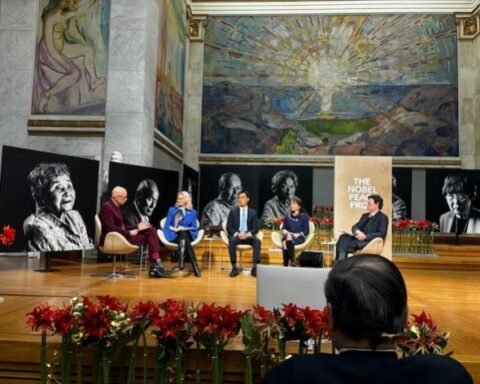US President-elect Donald Trump has warned he will impose 100% tariffs on a group of nations, including some of the world’s largest economies, if they attempt to create a currency to rival the US dollar.
“The idea that the BRICS countries are trying to move away from the Dollar while we stand by and watch is OVER,” Trump wrote on social media on Saturday, signaling a sharp escalation in his rhetoric against the bloc.
The BRICS alliance, consisting of Brazil, Russia, India, China, South Africa, Iran, Egypt, Ethiopia, and the United Arab Emirates, has discussed the possibility of developing a common currency in an effort to reduce the US dollar’s dominance in global trade. However, internal disagreements within the group have delayed any progress toward such a move.
Trump’s threat, directed at the emerging economies, comes just weeks before he is set to take office on January 20. Throughout his campaign and in his post-election statements, Trump has emphasized his intention to implement aggressive trade policies, including the imposition of tariffs.
“We require a commitment from these countries that they will neither create a new BRICS currency nor back any other currency to replace the mighty US dollar or they will face 100% tariffs,” Trump wrote on his social media platform, Truth Social. “They should expect to say goodbye to selling into the wonderful US economy,” he added, before remarking, “They can go find another sucker.”
Some of Trump’s allies have suggested his statements are not to be taken as firm policy but rather as negotiating tactics. Senator Ted Cruz, a Republican ally of Trump, commented on Sunday that the president-elect’s tariff threats could serve as leverage in trade negotiations. Cruz pointed to the swift actions taken by Canada and Mexico after Trump’s previous tariff threats, saying, “You look at the threat of tariffs against Mexico and Canada, [and] immediately it produced action.”
Trump’s pick for Treasury Secretary, Scott Bessent, also suggested that the president-elect’s rhetoric on tariffs was part of a broader strategy. “My general view is that at the end of the day, he’s a free trader. It’s escalate to de-escalate,” Bessent told the Financial Times.
The tariff threat comes amid discussions in the BRICS nations about moving away from the US dollar, which has long been the dominant currency in international trade and finance. While no concrete plans have emerged for a BRICS currency, leading politicians in Russia and Brazil have suggested it as a way to strengthen the bloc’s economic position.
Tariffs are a key component of Trump’s economic policy, which he believes will protect American jobs, raise tax revenue, and promote economic growth. A tariff is a tax imposed on imported goods, typically paid by the domestic company that imports the goods, not the foreign exporter. During his first term, Trump implemented a number of tariffs, particularly against China, and studies have shown that the economic burden of these tariffs often fell on US consumers, not foreign producers.
Despite the possibility that Trump’s tariff threats may be part of a negotiating strategy, the US president-elect’s warning to BRICS nations signals his continued focus on reshaping global trade dynamics in favor of the US. As the inauguration date approaches, it remains to be seen whether these threats will materialize into actual policy or if they are merely a starting point for negotiations.







